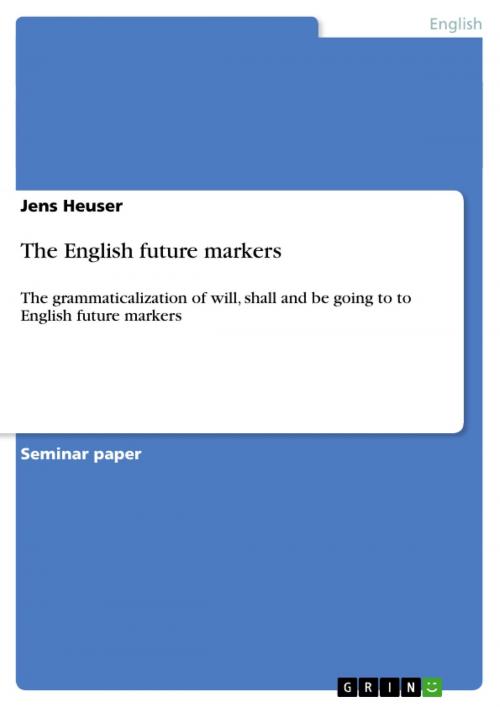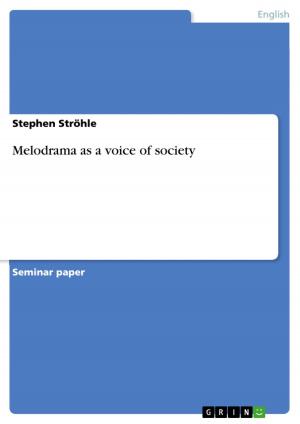The English future markers
The grammaticalization of will, shall and be going to to English future markers
Nonfiction, Entertainment, Drama, Anthologies| Author: | Jens Heuser | ISBN: | 9783640992812 |
| Publisher: | GRIN Publishing | Publication: | August 26, 2011 |
| Imprint: | GRIN Publishing | Language: | English |
| Author: | Jens Heuser |
| ISBN: | 9783640992812 |
| Publisher: | GRIN Publishing |
| Publication: | August 26, 2011 |
| Imprint: | GRIN Publishing |
| Language: | English |
Seminar paper from the year 2009 in the subject English Language and Literature Studies - Linguistics, grade: 2,3, University of Bamberg (Anglistik und Amerikanistik), course: Language Change, language: English, abstract: The grammaticalization of will and shall, and be going to from Old English verbs of volition, obligation and movement to Present-day English future auxiliaries will be the focus of this paper. Special attention will be devoted to the role of be going to (< gonna) which -as of today- has taken up an important position in spoken language. After a quick glance at the etymological roots of these words, their clines of grammaticalization will be outlined and contrasted to each other. As the process of grammaticalization of will, shall, and going to to future markers is seen as finished throughout literature, the current development of their 'successors' 'll and gonna continues to modify the system of future tense in the English language.
Seminar paper from the year 2009 in the subject English Language and Literature Studies - Linguistics, grade: 2,3, University of Bamberg (Anglistik und Amerikanistik), course: Language Change, language: English, abstract: The grammaticalization of will and shall, and be going to from Old English verbs of volition, obligation and movement to Present-day English future auxiliaries will be the focus of this paper. Special attention will be devoted to the role of be going to (< gonna) which -as of today- has taken up an important position in spoken language. After a quick glance at the etymological roots of these words, their clines of grammaticalization will be outlined and contrasted to each other. As the process of grammaticalization of will, shall, and going to to future markers is seen as finished throughout literature, the current development of their 'successors' 'll and gonna continues to modify the system of future tense in the English language.















